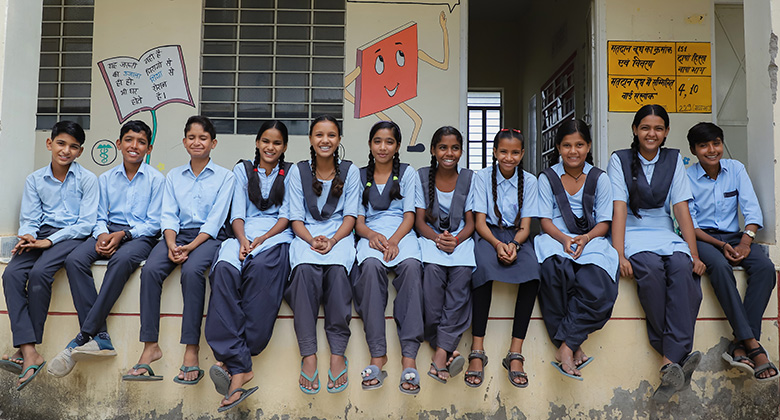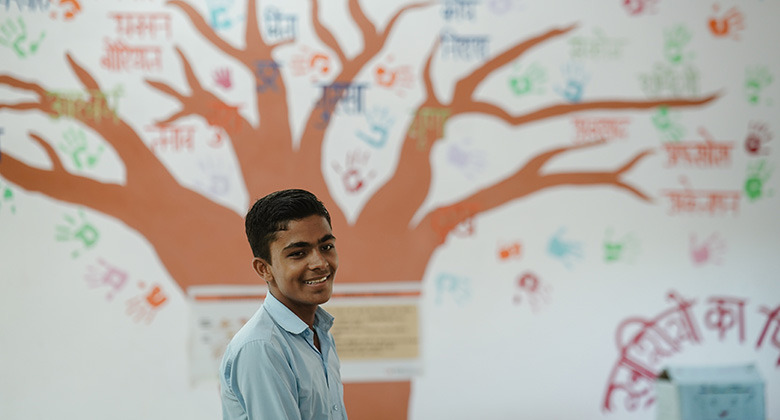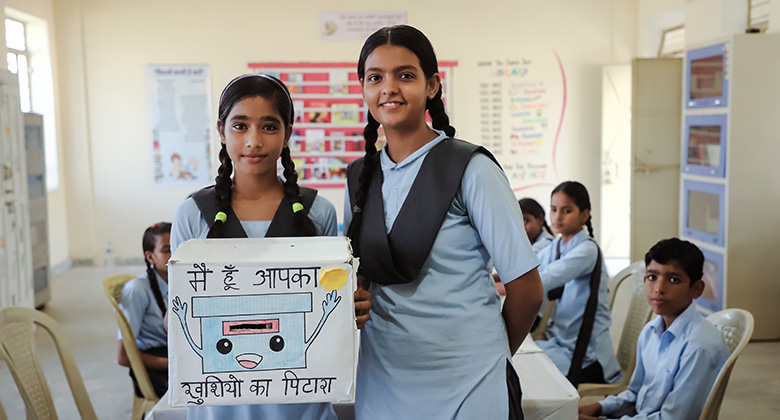
Meet Shweta, a grade 7 student in a government school, in a village of Jhunjhunu district of Rajasthan. An adolescent dealing with constant alienation and non-acceptance in school and at home. Shweta’s relationships with family and friends were adversely impacted as she used to express aggression towards her mother, sister, and classmates. Shweta started experiencing extreme negative emotions making her sad, angry, and anxious.
Shweta is not alone in this as millions of young adolescents experience negative emotions and distress due to physical, emotional, cognitive, and social changes. The question arises, do we have systems in place to help them experience emotional safety? After all, for them to be able to perform and give their best, they need to experience safe spaces.
Institutionalizing Social Emotional Learning lays the very foundation of creating spaces that foster well-being and a layered approach is required to achieve this goal.

The first step is to practice SEL for ‘self’ before we transact SEL for others. Personal transformation of adults is the key to building SEL competencies of students. We can only give what we have, and the well-being of self is important to enable the well-being of others.
Next step is to create SEL-enabled eco-systems as SEL is not so much about what we teach in the classroom - but rather how we teach. Even the best of SEL curriculum may not be effective if not transacted in a kind and compassionate manner. SEL must be the fiber of school systems and to be embedded in classroom learning as well as school processes.
Another key step is to re-imagine assessments because what gets rewarded is what gets done. Success indicators for our students, teachers, schools, districts, and the state need to be redefined. Celebrating academic success is important but making assessments holistic is critical to enhance well-being.

As the saying goes “it takes a village to raise a child”, we need a community of practitioners in the system who embody SEL competencies to create a better world for one and all.
Shweta, who now shares her experience with Social Emotional and Ethical (SEE) Learning on various forums, puts it “I get angry even now, but I have tools to make me feel calm. If you want to do SEE Learning, then do it with the heart. Don't do it because others are joining.”
Human beings seek connections and connections promote a sense of safety. This sense of safety is so very critical for these young people to flourish. A compassionate eco-system that values well-being can have a lasting impact in shaping the lives of millions of students like Shweta.
TAGS
SHARE





